Skull and Bones proves you can't take the Assassin's Creed out of Black Flag
Ship joint
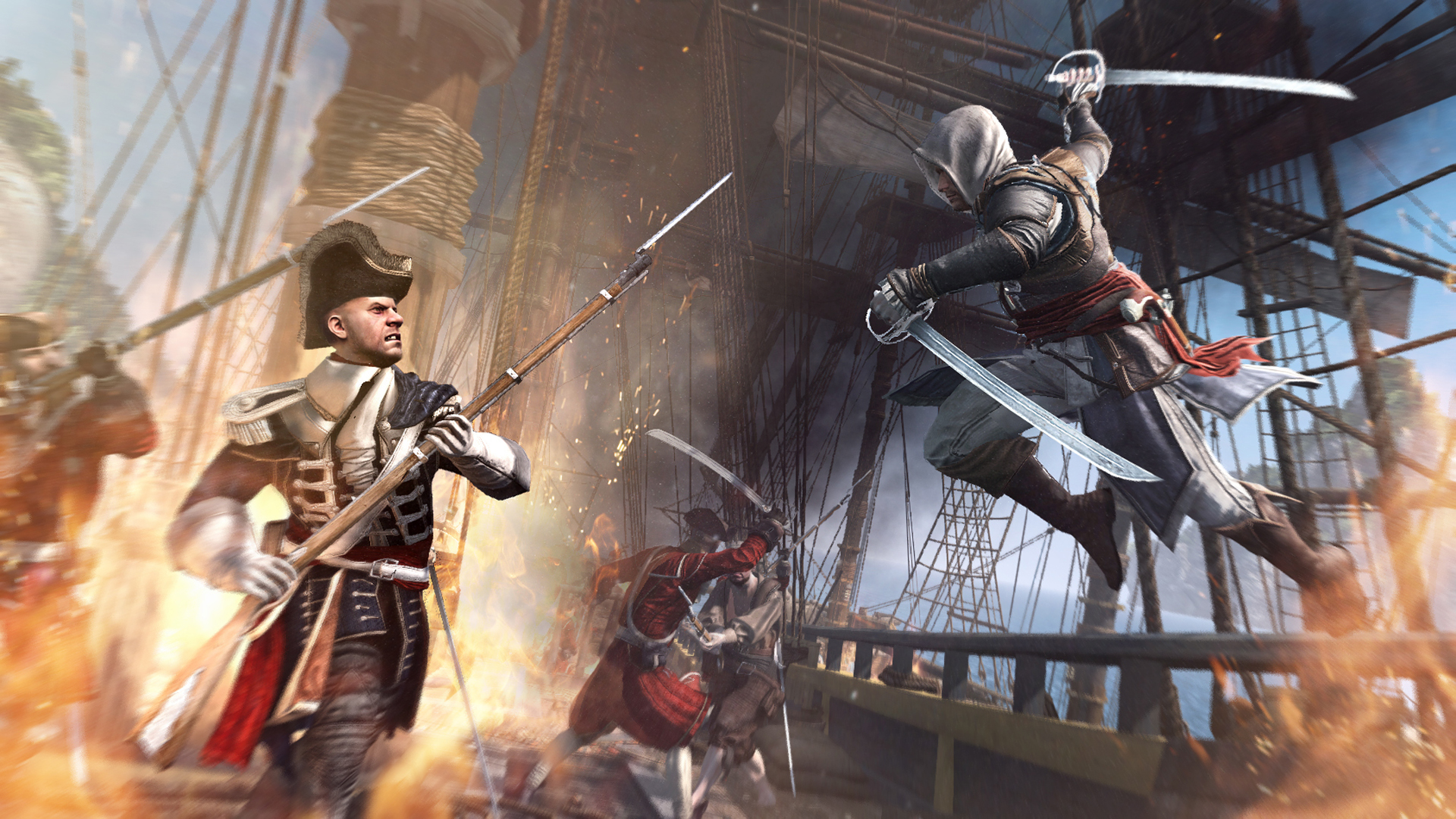
I have a theory, and it’s that Ubisoft’s forthcoming swashbuckler, Skull and Bones, was in development hell for so long because it was trying to answer a stupid question. It being: “Why can’t we have Black Flag without Assassin’s Creed?”
You can’t blame Ubi for trying – lots of people would like to ride the waves Edward Kenway once ruled without a whole series worth of baggage in the hold. But the resultant product is a multiplayer survival game. Admittedly with slicker menus than the 9,000 of those that come out every other week – but Skull and Bones looks like it has more in common with The Division than Black Flag.
The problem is this: once you take the Assassin’s Creed out of Assassin's Creed IV: Black Flag, you aren’t left with much. A beautiful rendition of the Caribbean in the 18th century, sure. But what do you do in it? What keeps you there?
Even in the base game, with a strong narrative pull to keep you going, the actual piracy stuff gets a bit tedious around the middle. Once you’ve fully upgraded your ship, hideout, and gear, Black Flag’s side activities become surplus to requirements.
There’s no simulated economy à la Elite, no bigger and better ships to buy, none of the marital prospects that you might find in Sid Meier’s Pirates!, or, for that matter, anything resembling a social ladder. No rivals. No intrigue. Nothing to climb, alas, but walls.
Pirate proxy
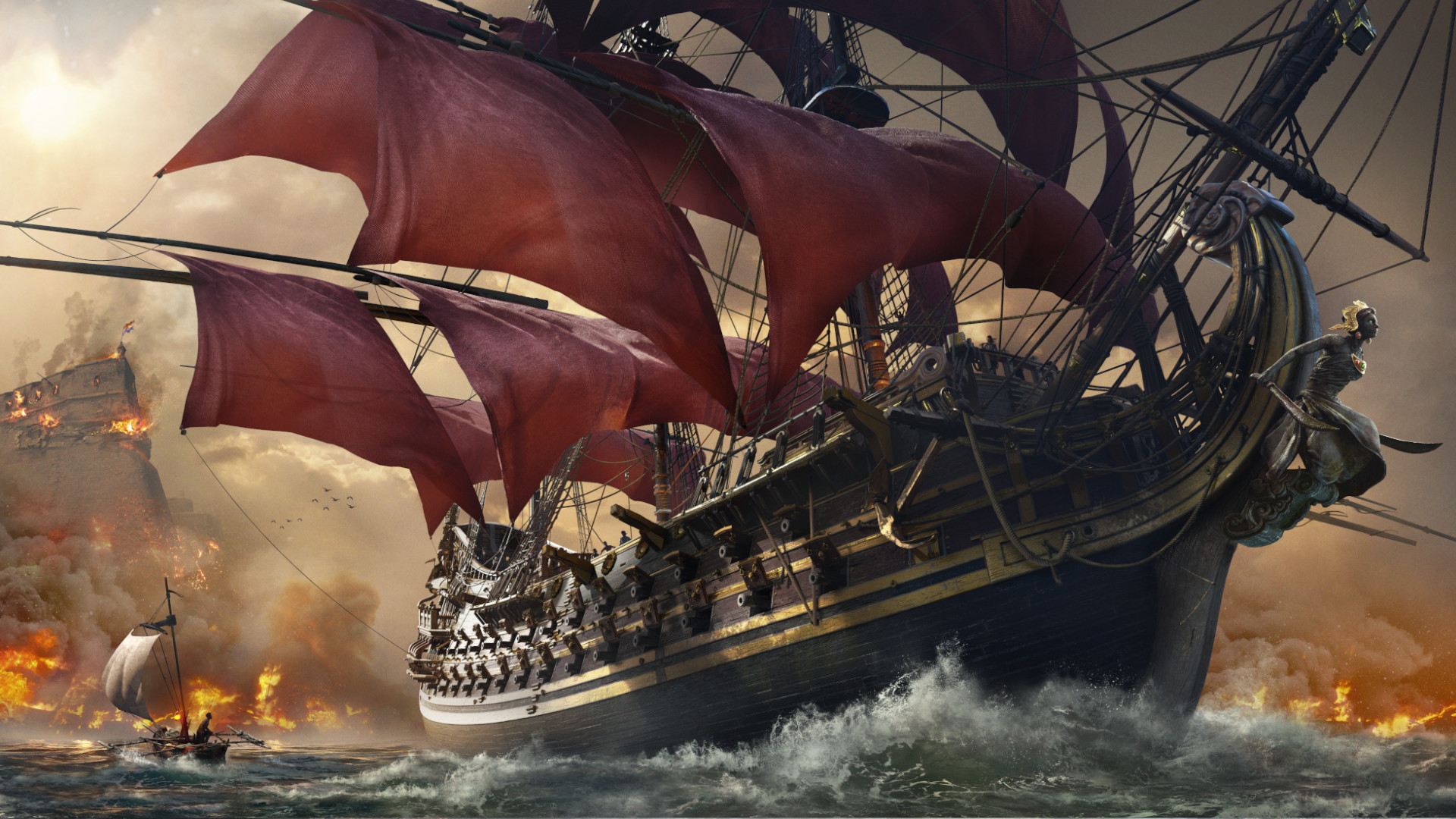
In the context of Black Flag, an Assassin’s Creed game, this is absolutely fine. Kenway is the star here; you’re not investing in sugar, you’re investing in his story. For seasoned fans, the role he plays in the wider continuity (a bridge between eras, and nexus around which a number of major characters orbit) is what really matters.
The emergent ‘pirate stuff’ is only as complex as it needs to be in order to support the character’s growth, giving the player a sense of progression that mimics Edward’s growing status in the narrative. Black Flag is in every meaningful sense an Assassin’s Creed game, for good or ill, with all the baggage that implies.
Get daily insight, inspiration and deals in your inbox
Sign up for breaking news, reviews, opinion, top tech deals, and more.
That aspect of its identity is fundamental, and can’t just be slotted out like a faulty GPU. Wishing it were not so is rather like complaining that Star Trek isn’t set on a submarine (something that was tried, as it happens, and was crap).
Assassin’s Creed is one of those bizarre cultural forces that generates discourse about how it should be something else
Assassin’s Creed is one of those bizarre cultural forces that generates an astonishing amount of discourse about how it should be something else. Every time it’s in the news, some tedious arsehole somewhere decides to write that piece again. You’ve seen it. It’s usually entitled something like “It’s Time For Assassin’s Creed To Ditch The Modern Day Story”, written by and for people who haven’t bothered to notice that it’s already been relegated to a largely optional fifteen minutes spread across a 300-hour RPG. Hardly worth the effort to complain about. If you had marmite on toast with that sort of ratio you’d need an electron microscope to confirm it was there.
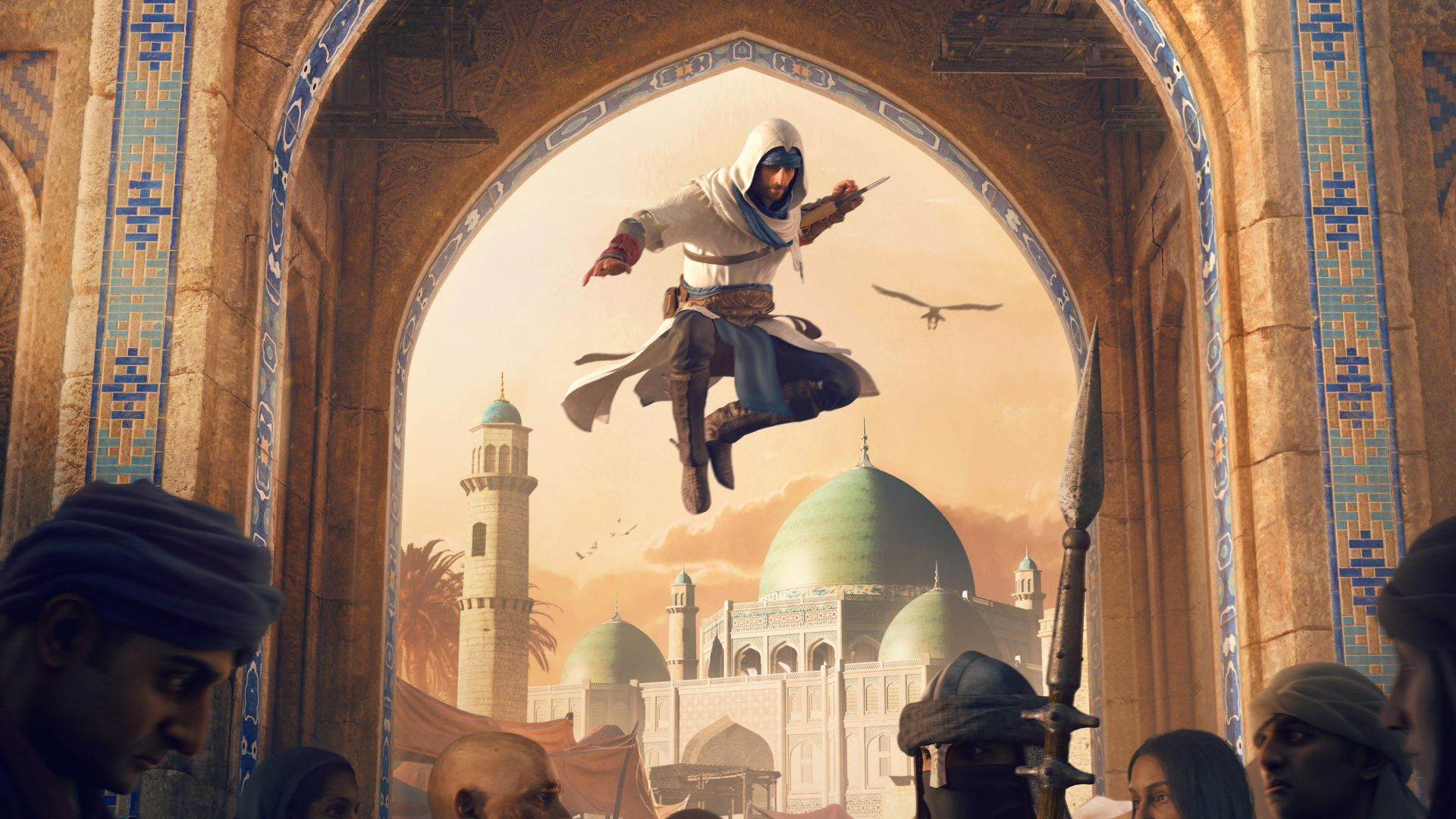
Assassin's Creed Mirage, the next release in the series, will be a stealth-focused adventure that evokes the 2007 original. It's a smart move from Ubisoft to combat franchise fatigue and capitalize on millennial nostalgia.
But OK, yes: it’s undeniable that a lot of people simply don’t care for Assassin’s Creed’s story. Despite this, the series is outrageously popular; beyond its ongoing take-it-or-leave-it depiction of an ideological cold war, Assassin’s Creed’s main draw is its capacity as a venue for historical tourism. A veritable holodeck brimming with archaeological and anthropological intrigue. Discover abandoned temples! Explore ancient cities in their prime! Meet interesting historical figures, and stab them with a Special Knife! Or, simply wander around, and learn about our ancestors – how they lived, how they worked, how they ate.
Ubisoft’s commitment to providing a Discovery Tour experience for each of its most recent Creeds is testament to how much of the series’ long-lasting appeal is down to its vibrant, hyper-detailed, and surprisingly accurate depiction of the places and people of long ago.
Plot hole
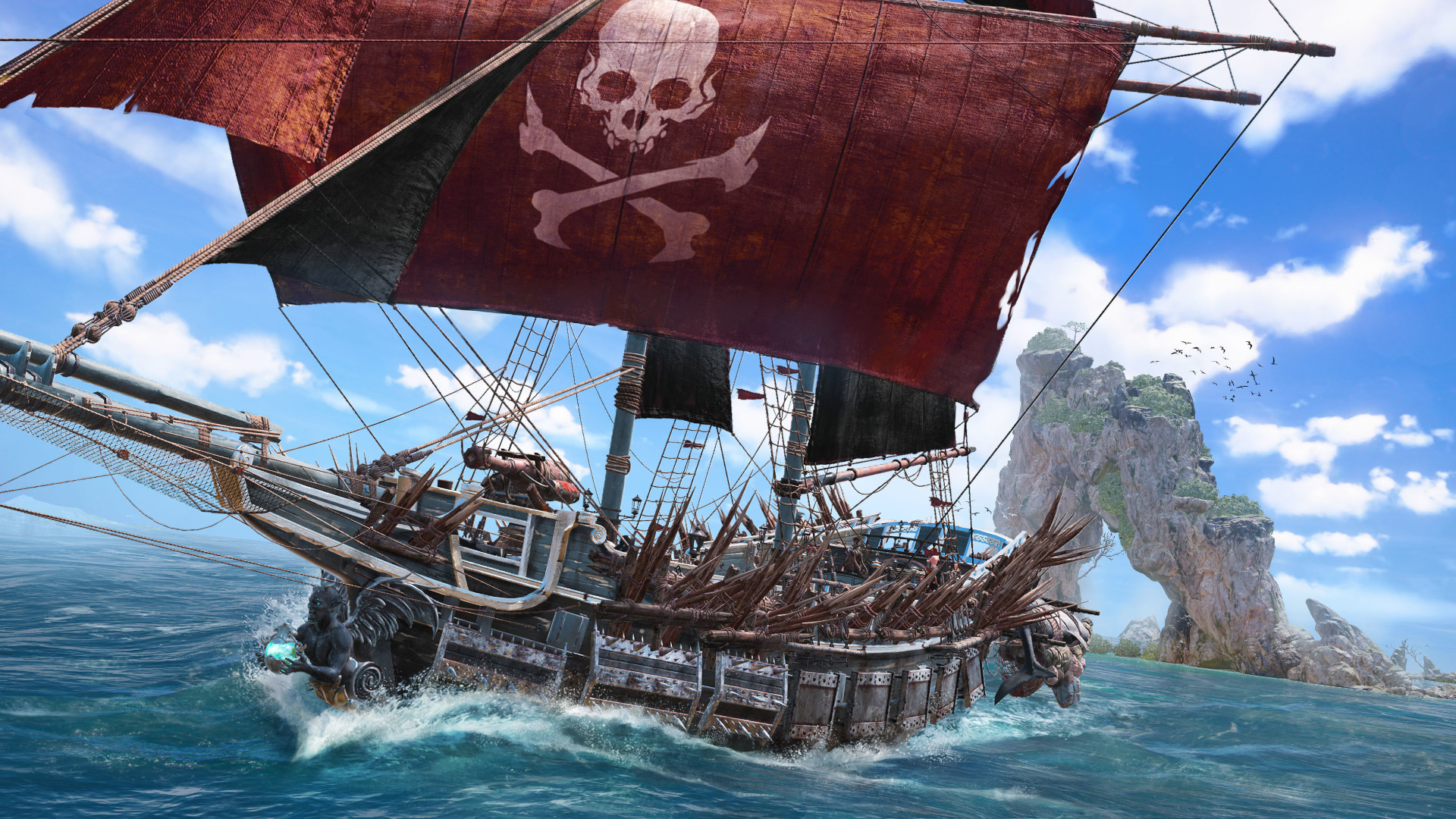
This is all to say that Black Flag’s broad appeal is not, as some seem to believe, in spite of its connection to Assassin’s Creed. It is, in fact, utterly dependent on it. Stripping Black Flag of that connection therefore leaves such an enormous hole to be filled that you might as well start over. What do you replace it with? A single-player story that, for example, adapted the real history of New Providence Island’s short-lived pirate republic would be covering so much of the same ground as Black Flag that it would scarcely be worth the effort. It makes sense, in that case, to focus on a multiplayer experience: have players ‘make their own stories’ and all that. But that’s not exactly what anyone meant when they wished for a Pirate Game Without all that Templars and Aliens Stuff.
With the best will in the world, Skull and Bones was never going to bear much more than a surface resemblance to the now creaking, last-last-gen game it was spun off from. Is it any wonder, then, that the project never seemed to have any direction? That it spent so many years as a cancellation rumor, surfacing only occasionally, and looking markedly different each time?
Skull and Bones looks more like sailing into a silly heavy metal album cover than any kind of time travel experience
Our latest glimpse of Skull and Bones reveals a pirate-themed fantasy playground that retains very little of Assassin’s Creed’s sense of place or authenticity. Ships clad in spiked armor spew flames at each other – in the shadow of a mushroom-shaped floating island that defies the laws of physics, let alone the history books. It looks more like sailing into a silly heavy metal album cover than any kind of time travel experience. This in and of itself is not necessarily a bad thing, but it hints at how impossible a task it is to remove Assassin’s Creed from Assassin’s Creed. You end up with a Ship of Theseus. A Trigger’s Broom.
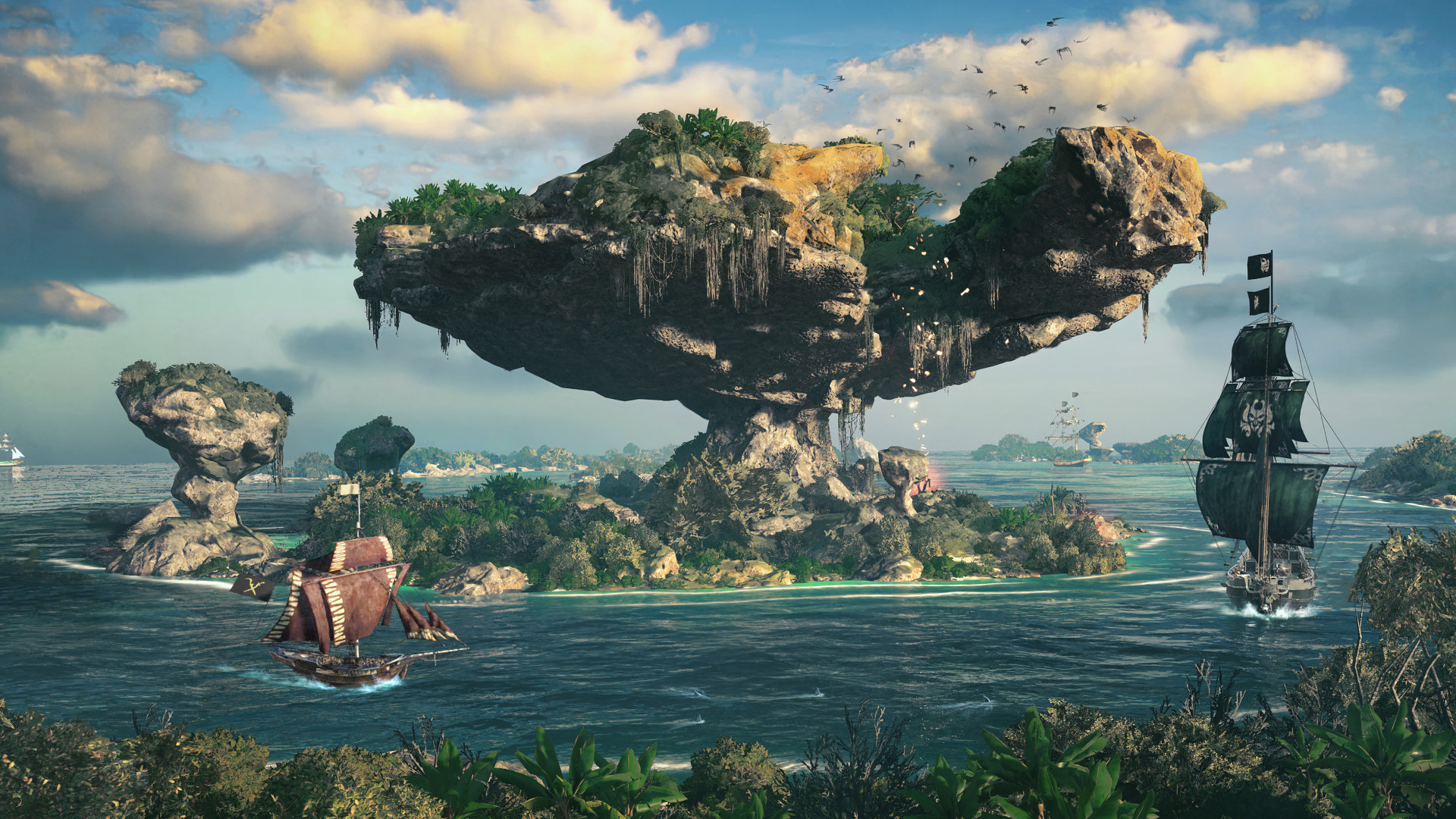
It remains to be seen if Skull and Bones turns out to have been worth the wait, or a sunk-cost-fallacy that should have been scuttled after the first concepts were abandoned. What is pretty clear, though, is that anyone hoping for some mythical baggage-free follow-up to Black Flag is going to be sorely disappointed.
The comparisons will be constant, inevitable, and rarely favorable, if for no other reason than nostalgia. So, Skull and Bones has a real uphill struggle on its hands – it has to be good enough, on its own merits, to defy and surpass some rather lofty expectations set by a beloved and half-remembered predecessor, whose success it is undoubtedly hoping to capitalize on despite being an entirely different kind of experience.
Good luck, Ubi.

Jim Trinca is a Welsh-Italian Scottish person from Bristol. During his decade-long career in games he has been a prolific podcaster and YouTuber, has produced countless game trailers and dev diaries for the likes of Capcom and Irregular Corp, and won three Games Media Awards for shouting at Chris Bratt while wearing a vest. In his spare time he tends to a cat.